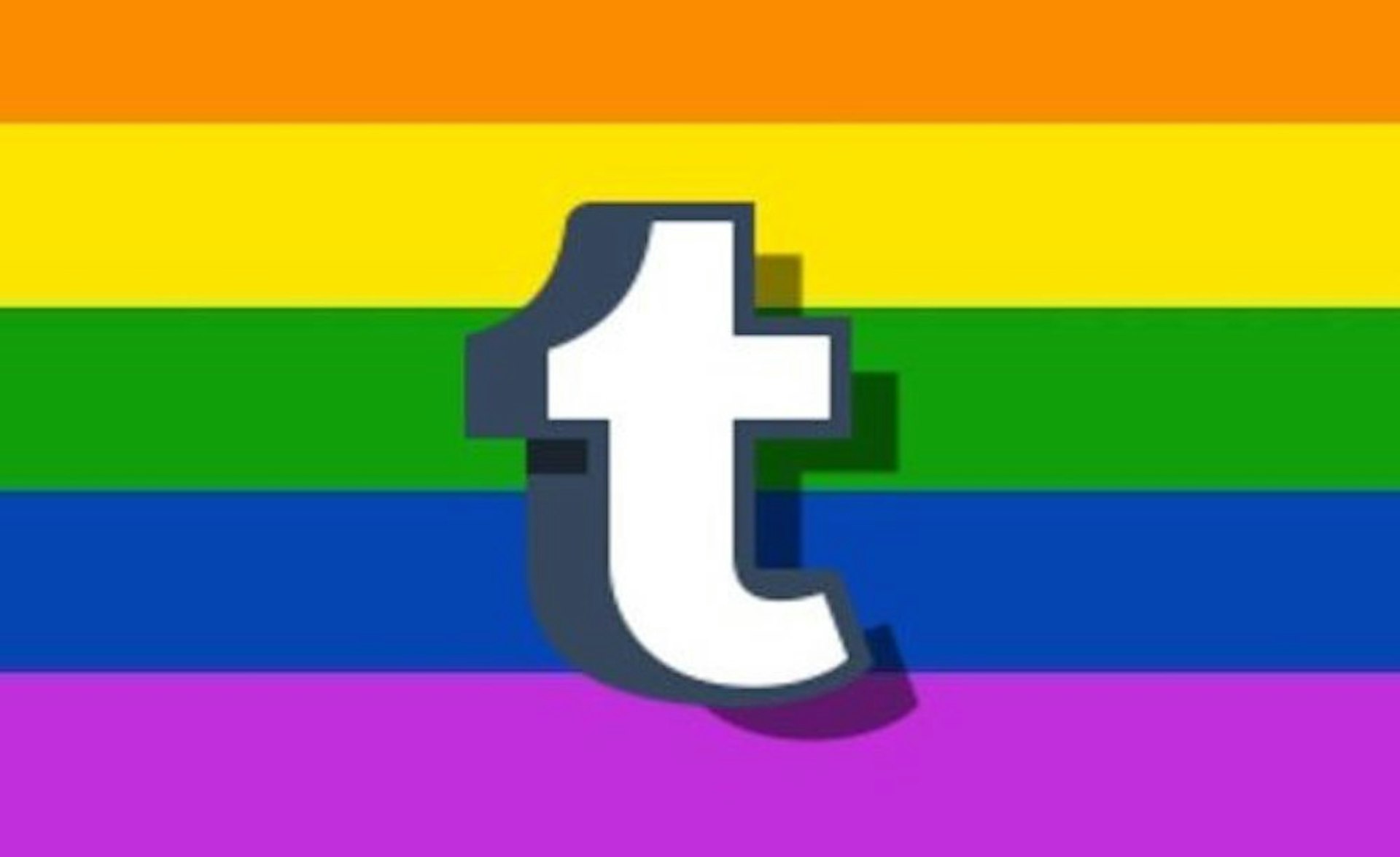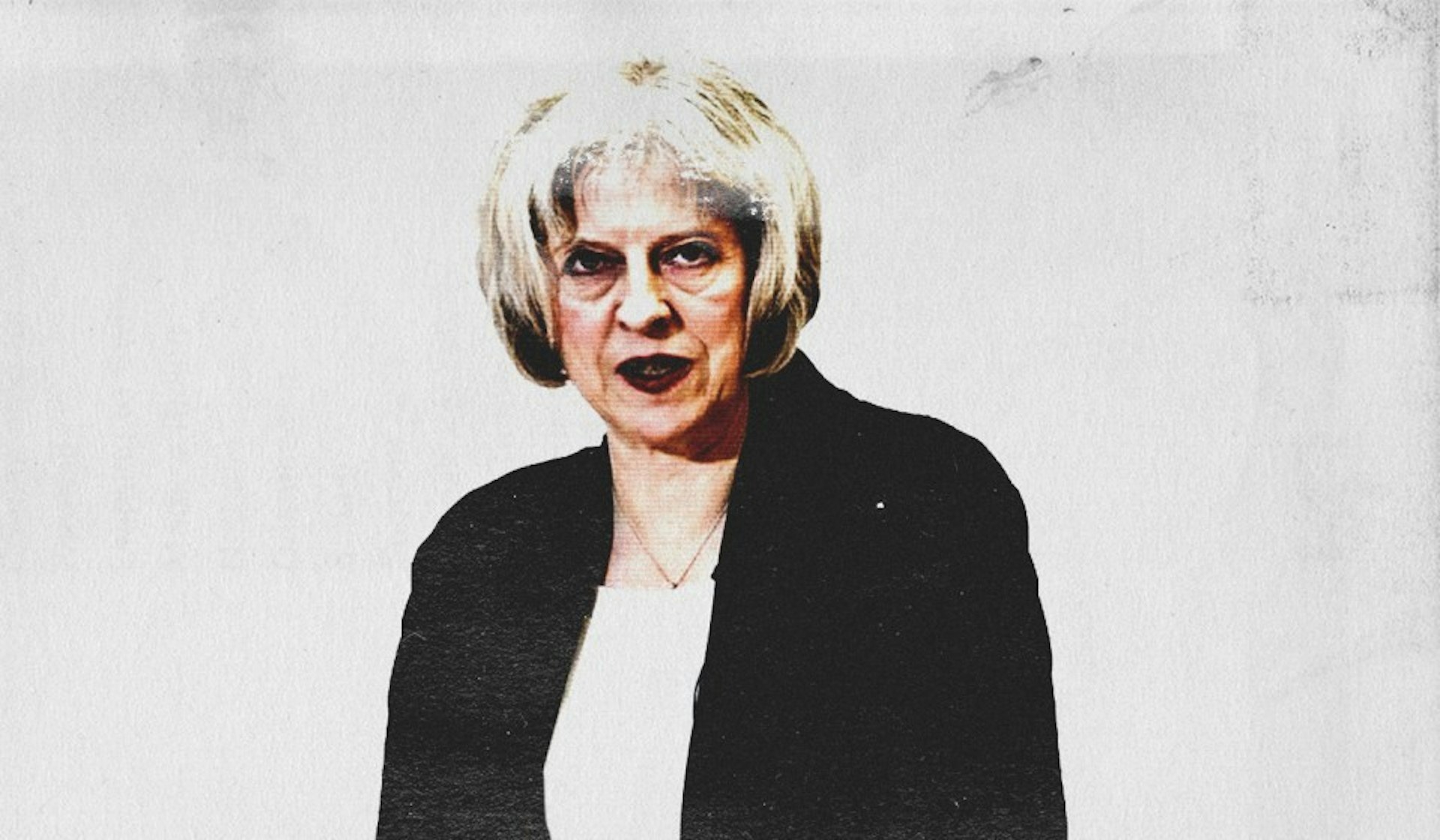
How Tumblr became a sanctuary for the Internet’s outsiders
- Text by Lydia Morrish
- Illustrations by Terrance Hardcastle
Vex Ashley, a UK-based porn creator and performer, didn’t realise how much people still cared about Tumblr when the micro-blogging site announced it would be banning NSFW art and images, one of its most-shared types of content. “I thought everyone had given up,” she says.
But they hadn’t.
From the strange and sensual to the weird and wonderful, Tumblr, launched in 2007, has long been the engine of internet culture. Fandom communities are just a few clicks away from sexy posts, while blogs dedicated to “dank” memes share domains with artsy comic creators.
“People sorted their adult fanfiction and art right alongside gif sets and memes,” says Reapersun, an anonymous comic artist and gay erotica creator. “And that was fine.”
Due to the platform’s historic openness and no-ads format, Tumblr has also been one of the number one places on the internet for people to access alternative sexual communities, full of erotic art and DIY porn. It’s this inclusivity that made Tumblr a comfortable home for pornographers to express and distribute their work, with many branding it one of the most porn-friendly social networks in existence.
All that is set to change after the platform announced last week that it would begin banning images and videos that feature “adult content.” The decision was reached when the app was temporarily pulled from Apple’s app store, after its filters failed to flag content containing child pornography (which is, of course, already prohibited from the platform). The ban, which will cover all porn apart from nudity that has a political or artistic quality, will be effective from December 17 – ironically, also the International Day to End Violence Against Sex Workers.
The Tumblr team had attempted to “create and enforce a policy that acknowledges the breadth of expression we see in the community”, explained CEO Jeff D’Onofrio in a statement. Without adult content, he said, “we have the opportunity to create a place where more people feel comfortable expressing themselves.”
The tumblr ban summed up in two screenshots: pic.twitter.com/uSVVLEohVZ
— Cody (@cocdcy) December 4, 2018
Featuring some of the most open digital communities, the inclusive parameters of Tumblr were a guide for a generation of digital natives. But the new policy threatens to alienate some of the internet’s most marginalised alternative communities.
“It was a cultural zeitgeist for my generation,” says Ashley, who began experimenting with DIY softcore content, like posting nudes on the platform, in 2011. “I found my home on there.”
Countless Tumblr blogs provided a space for those questioning their identities or exploring their sexualities to seek out feeds that represented them. From furry porn and kink posts to 19th-century gay erotica, Tumblr was a space for anything and everything.
“Tumblr was a wonderful space for all sorts of sub-communities of people with a sexuality that is somewhat different from the norm,” says Baltimore-based data scientist and former porn performer Dale Cooper. “It wasn’t dictated by algorithms by what sells per se… this was more dictated by tastes.”
Cooper, who was an adult film star for four years while he was a student, used Tumblr to build an alternative community. “While I didn’t use it to advertise services, it was wonderful for me growing my fan base,” he tells Huck. “There’s a thriving erotic fan fiction community on there.”
The format allowed people to curate and share their own collections of erotic content that were far-off what is available on mainstream platforms. “It was really great for people to see lots of different types of bodies, but also different things those bodies could do to each other.”
For adult content creators themselves, Tumblr provided a space to distribute alternative adult content to new and loyal communities. Ashley founded the independent pornography project Four Chambers in 2013 via the site, and her first porn shoot was organised with someone “halfway across the world” who she met on the platform.
“Tumblr introduced me to this global community who, like me, had grown up on social media, had been sharing their life online their whole life and were realising they could capitalise on it.”
The site allowed sex workers and porn performers to sell underwear, share porn clips and advertise camming work alongside personal posts and interests. “Porn was treated as much as a visual and aesthetic experience as any other kind of post,” says Ashley. “I didn’t have to prescribe to the traditional adult industry stereotype.”
Being able to create narratives on their own terms, privately and without fear of being “othered”, is what made Tumblr so imperative for some of the most marginalised, she adds. Instead of fetishising or falsely representing LGBTQ sex, Tumblr was a platform for more authentic, sensitive porn made for and by LGBTQ people.
“I’d had so much difficulty just finding places where I was able to post even mild same-sex artwork,” says Reapersun. “Many online spaces I’d been in before were male-dominated and not particularly welcoming to women or LGBTQ people… so it was very exciting to finally find a place where I could share my work, with few limitations, and engage with other fans in a positive way.”
“It felt very safe, creating content for each other without having to share it with a larger, mainstream community that might not see it the same way we do.”
Paulita Pappel, a queer-friendly porn creator, performer, and founder of her own homemade porn site, Lustery, says Tumblr “provided a community and access to porn for LGBTQ+ and people of colour that would escape the sexist, homophobic and racist standards that other platforms unfortunately reproduce.”
She thinks the ban could leave marginalised people without a space to express their sexualities. “‘Protecting the children’,” says Pappel, “is an ever-recurring argument from right wing and homophobic lobbies for convincing the public opinion to accept measures that actually discriminate or even criminalise LGBTQ+ communities, art and practices.”
not to be a melodramatic tumblr kid about it, but this platform was hugely important for me as a weirdo homeschooled religiously-repressed teen. we're losing a lot here, and I hope the weirdos of the future find a better home than this https://t.co/2FBcEbbzvk
— Samantha Cole (@samleecole) December 3, 2018
Over the last few years, porn filters used by Facebook and Tumblr have inadvertently blocked educational, informative and political content. (News articles about one young woman’s sexual harassment were judged as violating Facebook’s Community Standards and removed for spam in August 2018, while Tumblr flagged photos of cats doing cosplay as containing “sensitive media” in 2017.) And although the ban is yet to come into full force, Tumblr has already started labelling non-pornographic posts as porn.
“It will identify explicit content if half a page has beige skin colour, but won’t notice blow job shot that’s shot in blue light,” says Ashley. Even an article she published on Medium about the ban was flagged as pornographic both by Tumblr and Facebook.
On top of new FOSTA/SESTA rules in the United States that bans websites from hosting adult content, and Facebook’s new community guidelines that ban all sexually explicit content, including erotic messages, Tumblr’s ban is being seen as a sign that sex is too taboo to be public. For Cooper, it shows that tech companies are engaging in a “sex panic.”
“I find it troubling when sexually explicit media or things to do with sex are blanket banned,” he says, adding that placing the onus of children’s safety on internet companies is wrong. “It’s throwing things on platforms rather than addressing core issues of consent and sex ed that can be addressed separately.”
While it is increasingly important to keep children safe from harm on the internet, sex workers are also having their safety jeopardised by the internet’s new status quo. “It feels like every couple of weeks or months, there are new community guidelines,” says Ashley. “I’m really scared at how quickly we’re losing our freedom of sexual expression in online life.”
In June, Patreon, a subscription service platform that Ashley used to monetise her adult work for four years, suspended all adult content creators. Ashley had two days to delete everything off her page, and leave. “There is no safe space for us, we’re always being removed, having to start again.”
Of course, social networks with user numbers in their millions, such as Facebook and Tumblr, are corporate entities with responsibility over what is posted on their platforms. But Ashley says the push towards online spaces that are suitable for all ages undermines the purpose of social networks: “Often a safe space doesn’t mean a space that’s safe for everyone.”
There are other places for adult content on the internet, as D’Onofrio said in his announcement. But there are very few that Tumblr’s adult communities could find new homes in – Twitter is one of the only remaining NSFW content-friendly platforms left in the mainstream.
Unfortunately, Tumblr’s new policy is much more than the ejection of adult content, says Reapersun: “This ban, to me, is a loss of community and culture which is much more devastating than ‘Tumblr is deleting porn’. The safety on Tumblr was mostly a result of being able to curate and control your space, and unfortunately, there aren’t a ton of viable replacements for that experience out there.”
“A lot of people, like me, are going to be a bit lost for a while.”
Follow Lydia Morrish on Twitter.
Enjoyed this article? Like Huck on Facebook or follow us on Twitter.
